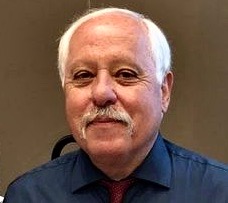I was subsequently asked to provide a presentation on the subject of effective listening to a group of college students who were members of the Public Relations Student Society of America. I titled the presentation: "Effective Listening: The Forgotten Skill in Public Relations."
The art of effective listening became a important part of my job in journalism and public relations because of a variety of reasons, virtually everything from being able to garner a good interview for a story to having the ability to talk to customers and clients who were under duress for whatever reason.
At the utility where I spent most of my career, I would occasionally be required to speak to an irate customer whose services had been shut off due to non-payment. Customer service reps handled most of those calls, but when customers threatened to go to the media, they'd send them to me.
That's when I learned that the class on listening I had taken as a freshman in college, came in handy. I found listening -- really listening -- went a long ways in helping customers feel better about the utility. Sometimes I could help, sometimes not, but the result of listening was impactful.
So I put together the introduction to my presentation, asking questions like: "What does it mean to listen well?" "If listening is important, why do we fail to do it as part of our charge as communicators?" And finally, "what are we missing when we aren't listening?" Then, I launched into my spiel.
The first area of focus was to "be present." Always be in the "here and the now." Avoid multitasking when you're listening. You can't effectively do both. Focus on the person you're talking to with your whole being. Remember, hearing is passive, listening is active.
If you're talking to someone in person. be sure to maintain eye contact -- a basic ingredient of effective communication. Eyes are the window to the soul. Remember to maintain your cool. A person is less likely to connect with someone who is anxious. Adjust your approach as necessary.
Be attentive but relaxed. Once you've established eye contact, relax and focus on what they are saying. Avoid becoming distracted by your own thoughts, feeling and biases. It can be hard, I know, especially when you're being collared by high pressure salespeople or consultants.
Keep an open mind and remain circumspect. Avoid judging; you'll compromise your effectiveness as a listener. Don't jump to conclusions; hear your subject out. Don't be a sentence-grabber. Let them finish their own sentences. Don't minimize their concerns or try to solve their problem immediately.
Listen closely to your subject and visualize what they are trying to say. Try to remember key words and phrases by taking notes. Paint a picture or visual image of the information in your mind to help you with your focus. If your mind starts to wander, re-focus. Paraphrase and confirm.
Do your best to not interrupt the speaker. Wait for them to draw a breath before you try to confirm details. Refrain from suggesting solutions. Remember that we all think at different paces. Adjust to the pace of the speaker. Don't shift the conversation to you and don't jump to conclusions.
Timing is everything. Wait for a pause in the discussion to ask clarifying details, but if you don't understand something, ask for an explanation. Look for the most appropriate moment to ask a question. If you do have a solution, get the speaker's permission before you talk.
Ask questions only to ensure understanding. If you notice your question has led your speaker astray, take responsibility for getting the discussion back on track. Keep the conversation moving along with periodic acknowledgement, like "I see..." Timing will be important here, too.
Try to truly feel what the speaker is feeling. Mirror what the speaker is feeling through facial expressions and words. Remember that empathy is the heart and soul of effective listening. Avoid saying "I know how you feel" unless you truly do know how they feel.
Provide the speaker with regular feedback. Demonstrate you understand where the speaker is coming from by reflecting their feelings. Always restate messages and key points to assure understanding. Sum up their perspective by paraphrasing why they've said.
Pay attention to what isn't said, both visually and in terms of audio. Remember we can learn a great deal of information without saying a word and merely paying attention to tone and inflection. Always restate messages and key points made by the speaker to assure understanding.
In summary, you build trust by listening to people, helping them feel that they're respected and valued. Remember that people are unpredictable. What they know and understand is different than what you know and understand. There's always more to the story than meets the eye.
Finally, a few quotes from individuals from the literature and entertainment world on the art of effective listening. Mark Twain: "Wisdom is the reward you get for a lifetime of listening when you would rather have talked." Raquel Welch: "You can't fake listening. It shows."
Epictetus: "We have two ears and one mouth so that we can listen twice as much as we speak." Ernest Hemingway: "I like to listen. I learn a great deal from listening. Most people never listen." Richard Branson: "Lead by listening. To be a good leader, you have to be a great listener."






